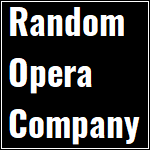What if our mortal fate was determined by the vagaries of a sorting algorithm?
Peter sits behind a desk, collating the monthly admission statistics. It never used to be like this. Everything decided by the software. No room for making allowances. When Iris – the latest applicant – arrives, her refusal to accept the results is problematic for Peter. His boss, Paul, isn’t very helpful; nor is Francis, the customer service agent whom Peter looks to for guidance. Peter is left questioning his future in the department.
The Heavenly Ledger was written by Evan Henry & John Klaess, and is Random Opera Company’s first new opera commission, which is the result of our 2021 composition competition. The esteemed jury comprising Martyn Brabbins, Sir David Pountney and Claire Rutter praised the piece for telling a pertinent story with humour and a tinge of sadness and enjoyed the unique approach to harmony.
Librettist John Klaess on the inspiration for the opera
“Evan and I have talked about writing an opera together for over a decade, from when we were undergraduates together at the Eastman School of Music. Out of the blue last year, Evan texted me to pitch an idea for an Opera: Imagine a short staged piece set at the gates of heaven, where the story follows the folks who are lined up to learn their fate. As singers move through the line, a pattern emerges. Only folks who were conventionally successful were admitted. The preferred morality in this heaven is achievement as indexed by title, wealth, or status. The more we worked on it, though, the more it felt too didactic. There was no humor in it. It didn’t feel like it would be fun for the audience, and we didn’t really want to write a morality play. And most of all, I was completely absorbed by my job at a software-as-a-service startup at the time and didn’t have the mental space to think through a better, alternative worldview. At a certain point, it made sense to try to smash the two together. “
“Approaching the question of who gets into heaven through the lens of a SaaS product forced us to find a more interesting direction: What if the value system of heaven was technologically determined? What if there was an algorithm that sorted souls? What if that algorithm was embedded in a piece of business productivity software, and neither customer nor vendor really understood how it worked? Removing individual agency from the acceptance decision opened up much richer narrative territory—territory that’s particularly suited to the kind of explorations of interiority and interpersonal conflict that opera stages so well.”
“So much of our life is influenced by algorithmically driven processes. Whether or not we’re approved for a mortgage, the music we listen to, what products we buy—all of it subtly but indelibly influenced by an invisible algorithmic hand. So our original setting of heaven was a perfect opportunity to work through some questions we feel are particularly relevant today. To what extent do people displace the decision making responsibility onto technology? To what extent do algorithmic suggestions allow us to justify doing what we wanted to do anyway? How do we think about human agency in the era of ubiquitous algorithms? How does a company’s prioritization of growth and profit influence an individual user’s behavior? We’re particularly interested in tech companies as large, complex social structures where employees might find themselves navigating a treacherous course between the stories the company tells about itself, the reality, and their own potential to gain from a company’s success. Ultimately, we were way less interested in what counts as a heaven-worthy life—insofar as that concept has any contemporary purchase—and more interested in the way that Peter and his coworkers in heaven process decisions made by the Heavenly Ledger. It was also really fun to imagine heaven as a beleaguered, legacy corporation rather than as a cloudy distillation of virtue.”
Composer Evan Henry on the Musical inspiration
“For the music, I was often interested in responding to the subtext of the libretto, rather than simply coloring the immediate needs of the plot or characters. Peter is, as John and I have described, “a harried bureaucrat,” but his first song seems to suggest otherwise, being highly animated and particularly virtuosic. I saw Peter’s sarcasm as a kind of defense mechanism that allowed him to express his thoughts in an emotionally disconnected or “safe” manner. The music then is painting Peter’s internal conflict between the genuine love that he has for people and his capacity to find the good within them, and a structure (more specifically, a computer program) that demands he stymie his intuition. Focusing on the text in this way can create some deeply contradictory moments between the tone of the music and the actual words being expressed. “And God has a thing for graphs,” is a very funny line given the context of the setting, but the music that follows stresses a melancholy quality about the situation. It would be a very sad thing indeed to reach Heaven only to discover that your fate is determined less by your actions, and more by whether or not a black-box algorithm decides to “count” them. The result is that the music takes on the role of a kind of chorus, commenting on or emphasizing that which is not explicitly said by the characters. I think this approach leaves a lot of room for interpretation, and I invite the audience to imagine the various kinds of meanings that the music could potentially be painting.”
“Iris’s musical language is somewhat more straightforward regarding her character. Her attitude and wit suggested to me something significantly more “bluesy” in tone. I use this to set up an important moment of contrast that occurs when she accepts the offer to join the Department of Liminality. In parallel with Iris’s character, the music makes a complete 180 in favor of something markedly more tonal. I tried to evoke something that felt like a climactic “farewell” song. I did this in order to punctuate the deep irony of the moment: when presented with eternal stability, all of Iris’s righteous indignation is immediately disregarded, and despite costing Peter everything, she’s easily able to wave her actions off. “You’ll land on your feet.” (After all, it’s easy to be a rebel until the empire offers you a decent severance package.) My intent here was to create the most awkward musical moment I could imagine, articulating a deeply uncomfortable moment with musical material that strongly suggests resolution. Personally, I always chuckle at Paul’s line as it approaches the cadence. “Let’s talk about your offer,” almost sounds like something out of Bing Crosby, and this is one of my favorite moments in the whole piece.”
“In any other plot, the upper management of a bureaucracy would be the primary antagonist, but here I wanted to paint Paul’s character as more tired than overtly malicious, and it was particularly important to emphasize his relationship with Peter. Paul’s musical language was constructed with reference Peter’s, but aesthetically it is far less animated, and it has been heavily transformed to the point where it is not easily recognizable as being related. I write “Heavy” in the music here, to deliberately contrast with Peter’s “Light”. Paul has been weighed down over the years by the consequences of the decisions he’s had to make as a member of upper management, and while he can still empathize with Peter’s position, ultimately, he can only respond to Peter’s anxieties by reminding him of how far the department has come as a corporate entity. He’s stuck now, and so is his music.”
“Francis’s material makes use of some of the only obvious quotation in the work, quoting directly from Iris’s song. Like Paul, his music is sympathetic to Peter, but unlike Paul this sympathy is in service of a kind of tactic. Much like with real-world sales reps, Francis’s relationship with Peter is in the service of making him more susceptible to buying products. However Francis’s character is not simply manipulative for the sake of it. There’s a deep emotional conflict that emerges between the sales representatives’ requirement to sell product, and the demand that they also have “real” relationships with their clients. The words, “We all do what we have to,” echo with Iris and Peter as they wait on hold for Francis to initially pick up. My emphasis on the refrain was an attempt to elevate that conflict to the foreground.”
“All the characters within the Department of Liminality carry with them a kind of emotional baggage. I think that baggage like this accrues within all of us when we’re faced with situations in which the dynamics of power or structure demand that we make decisions that would otherwise be against our better moral judgement. Even though this work is humorous and satirical, I didn’t want to dwell entirely within the realm of comedy. Instead, I strived throughout to give a voice to that baggage, and I think that’s really what makes this story more than just a parable about the consequences of offloading decision-making responsibility to algorithms or about how corrupt structures use stability as a means of quelling their critics. It’s about how people respond to a conflict that goes back well before the modern age, and my hope is that this work will resonate with a wide audience because of that.”
Composer – Evan Henry
Evan Henry is a composer and native of Rochester, New York. He studied music formally at the Eastman School of Music and the University of Pennsylvania, and is a practitioner of Balinese gamelan gong kebyar music. Evan’s compositional voice is shaped by his many musical fascinations, particularly the music of his long-time mentor Ricardo Zohn-Muldoon, and also by the writings of authors such as David Foster Wallace and Italo Calvino. His music has been described as light and dance-like, featuring a strong sense of melodic line, clear pitch centricity, a poetic sense of form, and a unique approach to harmony inspired from jazz. Currently, he is working on a commission from the Rochester Philharmonic Youth Orchestra for their 2023 spring concert, and is planning a new scenic cantata for the Rochester based ensemble fivebyfive to premier in 2024.
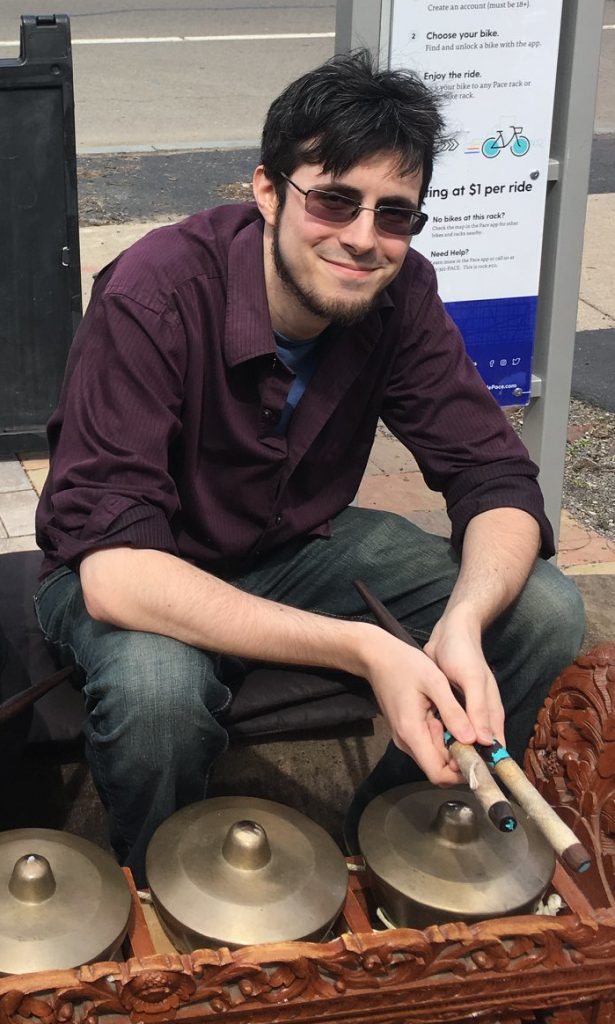
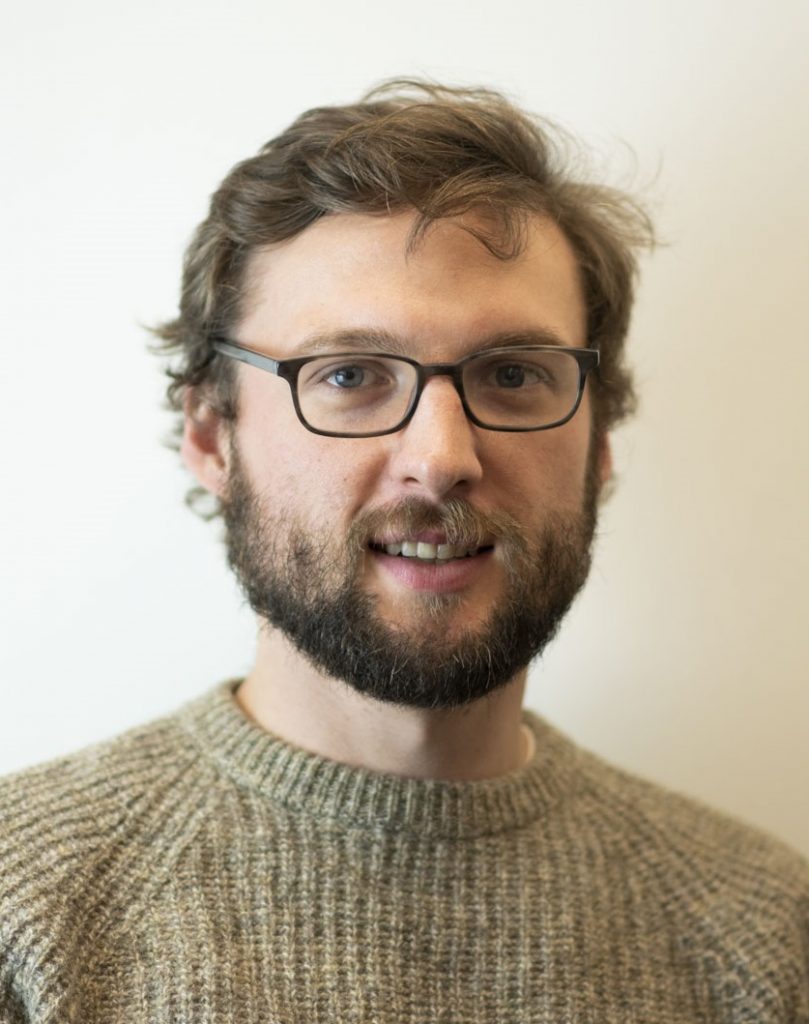
Librettist – John Klaess
John Klaess is a writer based in Boston. He holds a Ph.D in Ethnomusicology from Yale University, and his first book, “Breaks in the Air: The Birth of Rap Radio in New York City,” was recently published by Duke University Press. He currently works in product education at a manufacturing technology startup.
Musical Director – Michelle Marie Santiago
Originally from Edmonton, Canada, Michelle is equally adept as a soloist, collaborative pianist, chamber musician and repetiteur. She holds a Doctor of Music from the Université de Montréal. Presently, she lives in London, UK where she studied at the Guildhall School of Music & Drama as a repetiteur on the prestigious opera course.
Michelle is now a staff accompanist at the Guildhall School of Music & Drama


Peter – James Corrigan
Since graduating from the Royal Conservatoire of Scotland in 2015 James has worked as a freelance singer involved in various projects that include: singing the role of The Husband in the UK premier of Philip Glass and Robert Moran’s The Juniper Tree, performing as part of Janice Kerbel’s 2015/2016 Turner Prize entry, Doug and singing Papageno in a premier of a Scots language production of The Magic Flute.
James has been privileged to be involved in a number of emerging artist programmes taking roles and cover roles during Summer seasons. These include Iford Arts New Generation Artists, Garsington Opera’s Alvarez programme and Opera Holland Parks Young Artist programme.
A devoted dog owner, James can often be found in the Scottish moors with his dog Bramble.
Iris – Sarah Richmond
Mezzo soprano Sarah Richmond is known for her emotional engagement, with Opera Magazine remarking “Her voice was bright and clear, her acting wholly convincing”.
Prominent conductors of solo engagements include Vasily Petrenko with the Royal Liverpool Philharmonic Orchestra, Paul Daniel and Sir Mark Elder. Extensive UK and Ireland concert performances incorporate Elgar’s Sea Pictures, Brahms’ Alto Rhapsody and Respighi’s Il Tramonto. International concert credits feature Monte Carlo and Soriano nel Cimino. Recital appearances comprise of the Royal Opera House, Oxford Lieder Festival and Chester Music Festival, amongst others.
Sarah’s favourite roles to date are Willie Guglielmo Ratcliff, Yelena Popova The Bear, Erika Vanessa, Veronique Le Docteur Miracle, Lucrece What Happened to Lucrece, The Boy The Musician, Meg Falstaff, Mercédès, La Zia Principessa, Suzuki, Dido, Cherubino and Dritte Dame.
Competition successes include winning the Toronto Mozart Vocal Competition, ‘Best Performance in German’ at Donauwelle International Music Competition and both Third Prize and ‘Premio Speciale Mozart’ at Concorso Internazionale di Canto Lirico Toscanini.
Sarah has enjoyed several training programmes: English National Opera Opera Works, inaugural Wexford Festival Opera Factory, DEBUT Horizon Project and the Britten Pears Young Artist Programme. Sarah is grateful to be supported by The Arts Council of Northern Ireland.
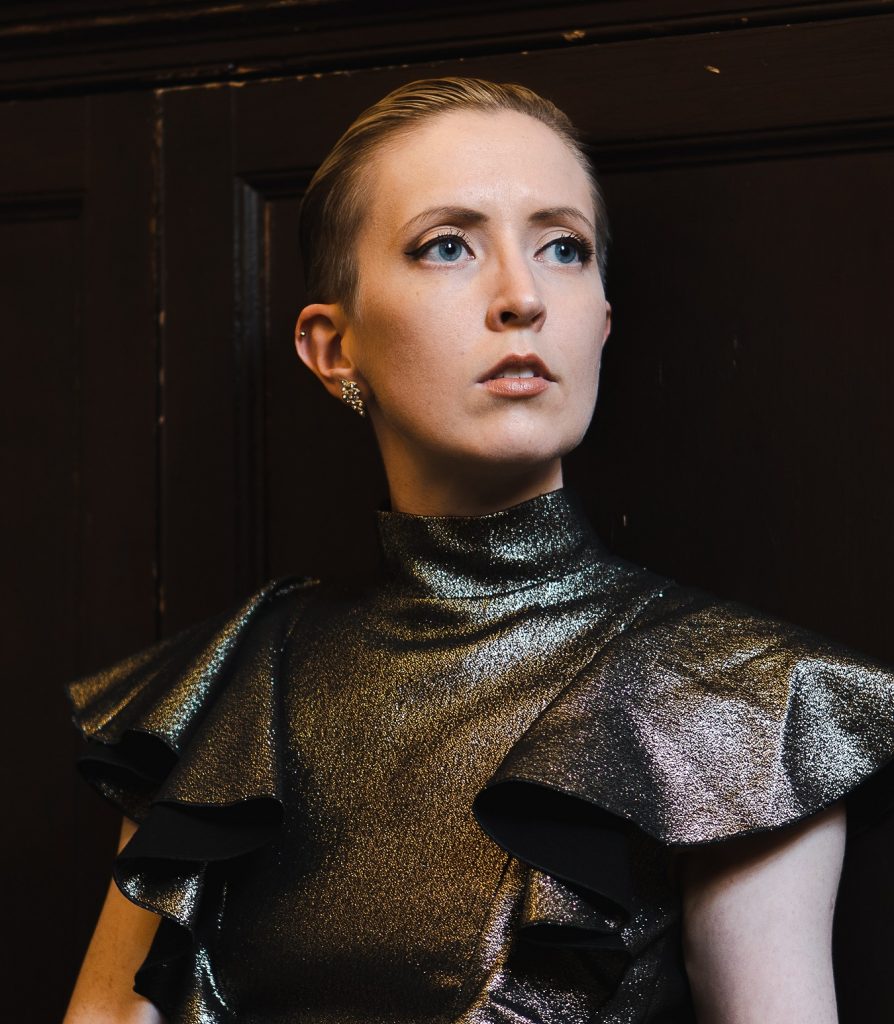
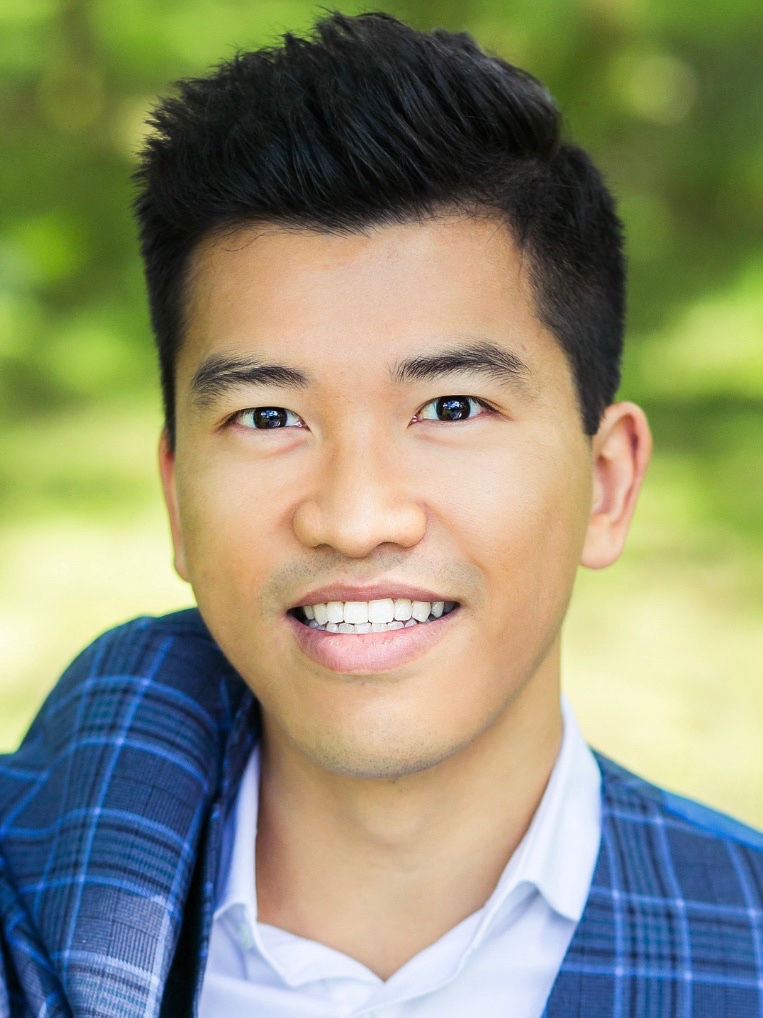
Paul – Jacob Bettinelli
Hong Kong bass-baritone Jacob Bettinelli trained at the Wales International Academy of Voice, after graduating from the Royal College of Music with a Master of Performance and Bachelor of Music degree. He was a Britten Pears Young Artist, recipient of Third Prize in the Piemonte Opera Voci dal Mondo International Singing Competition in 2019.
Jacob made his professional debut as Ford in British Youth Opera’s production of Sir John in Love at Opera Holland Park, conducted by Marit Strindlund. Described as “superb bass-baritone comes to the fore.” (musicOMH) and “demonstrates musical intelligence and a strong stage presence” by Opera Today. Other role appearances include Don Alfonso in Così fan tutte, Don Magnifico in La Cenerentola (Barefoot Opera), Escamillo in Carmen (Carshalton Opera), Henry Johnson in The Aspern Papers (Pegasus Opera); Jai in The Silver Spoon (Keynote Opera) and Wofie in Red! (Barefoot Opera). During the summer of 2021, Mr. Bettinelli made his title role debut in Le nozze di
Figaro at the Teatro Ocampo de Morelia and appeared as a soloist in the opera gala, sharing the stage alongside international acclaimed soprano Jennifer Rowley and
Luis Ledesma with Orquesta Sinfonica de Michoacán under the baton of Jorge Parodi.
This season, Jacob appeared at Glyndebourne to perform in a masterclass with Danielle de Niese. He was selected for the Pegasus Opera Mentoring programme and is being mentored by Roderick Williams.
Francis – Garreth Romain
Garreth Romain is a British countertenor from Bradford, West Yorkshire and a graduate of Trinity Laban Conservatoire of Music & Dance. There, he was awarded the Kathleen Roberts Vocal Scholarship, Finzi Trust and the Wilfred Greenhouse Allt Prize for Oratorio and Cantata. Previous roles for Trinity Laban Opera Scenes include Athamas in Händel’s Semele, Hamor in Händel’s Jephtha and Cherubino in Mozart’s Le Nozze di Figaro. He studied classical voice under the tutelage of tenor, Dominic Natoli. Since leaving Trinity Laban, Garreth has worked with London-based opera companies such as Blackheath Halls Opera, Random Opera Company and Hampstead Garden Opera. He recently performed in Film Performance by composer, Luciana Perc as part of the London Tête-à-tête festival 2022. Garreth is now under the tutelage of internationally renowned countertenor, Andrew Watts. During his studies for a Masters’ degree at the University of Leeds, Garreth specialised in classical voice under the tutelage of tenor, Austin Gunn. He also joined the Leeds University Union Opera Society (LUU OperaSoc) where he took part in the productions of Mack the Knife (Tiger Brown) and Gilbert and Sullivan’s Princess Ida (King Gama).
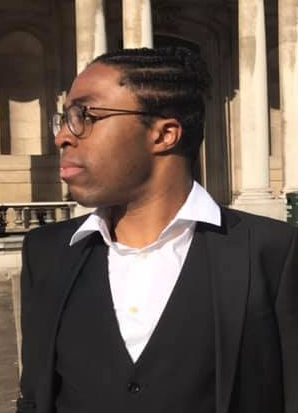
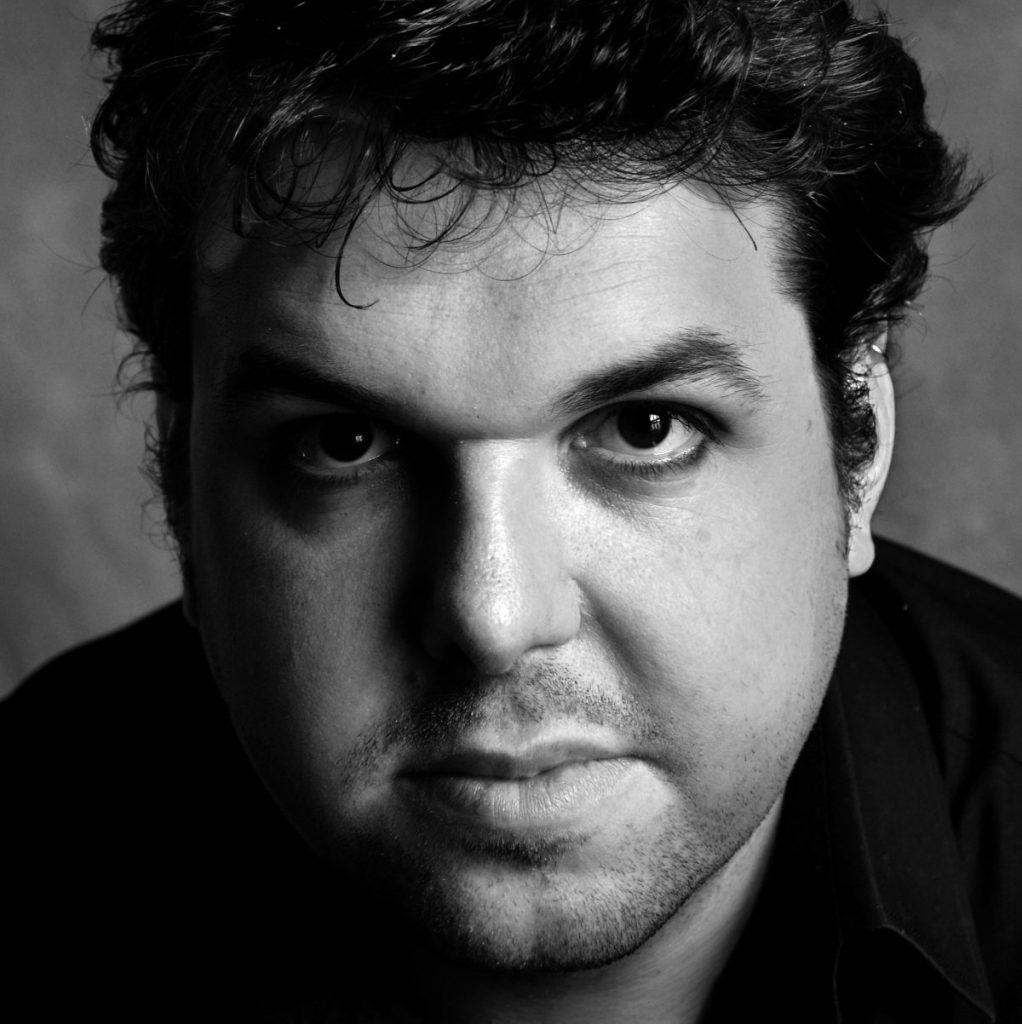
Director / Videographer – Richard Tegid Jones
Richard Tegid Jones studied music from an early age. He also gave up his studies at an early age, feeling that Grade 2 violin was sufficient achievement. Since then he has mostly been winging it.
Alongside a career in accountancy, Richard began performing on the amateur stage in 2003, with a variety of Gilbert & Sullivan roles under his belt. After starting Random Opera Company on a whim in 2011, Richard began training privately – first with Alison Roddy, and then with Mike Dewis – and has performed various operatic roles.
Richard began directing during lockdown 2020, and his directing credits now include Le Nozze di Figaro, Gianni Schicchi, Suor Angelica, Don Pasquale, L’elisir d’amore, Der Freischutz and La Sonnambula, all for Random Opera Company.
As well as performing, directing & producing opera for Random Opera Company, Richard is also a Volunteer Director of OperaUK.
